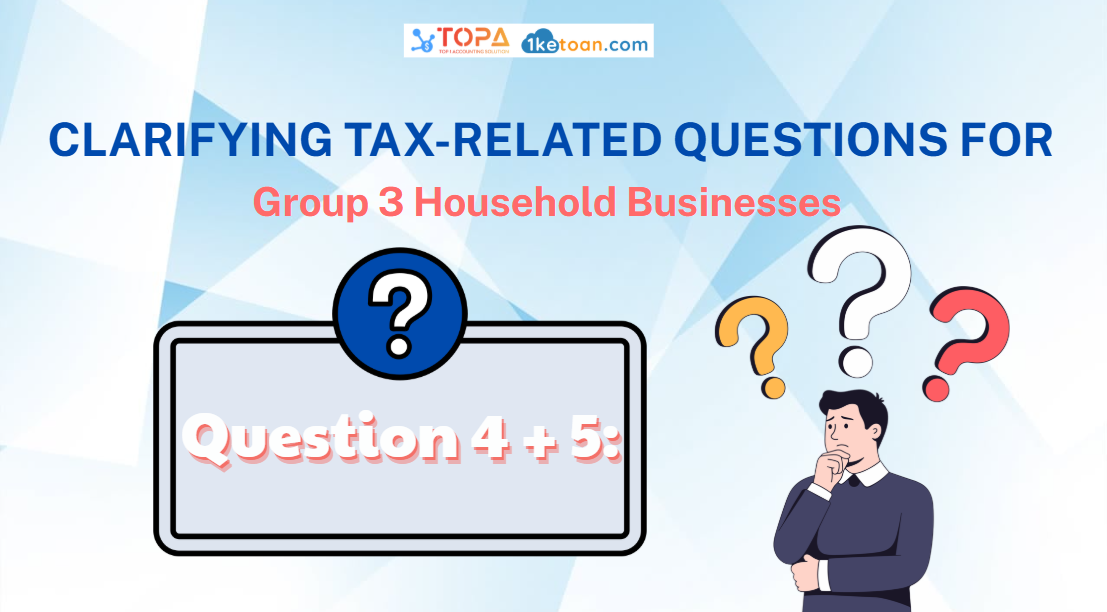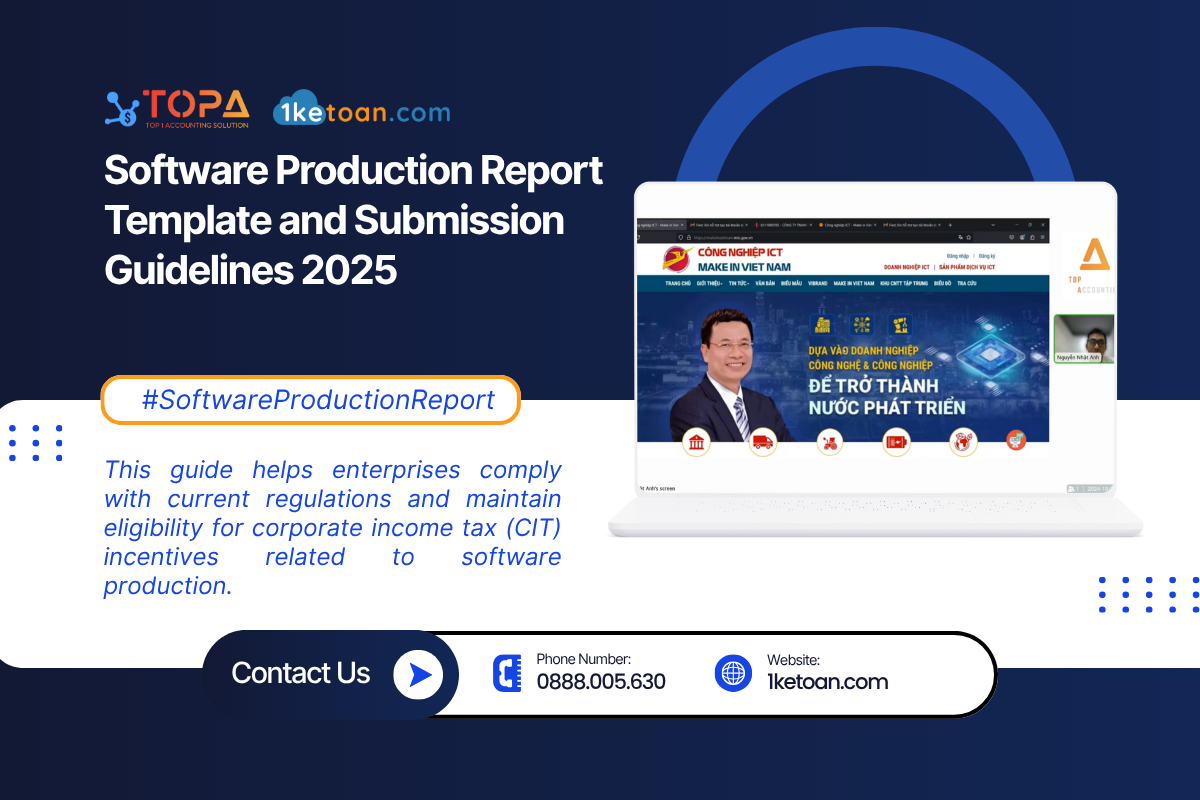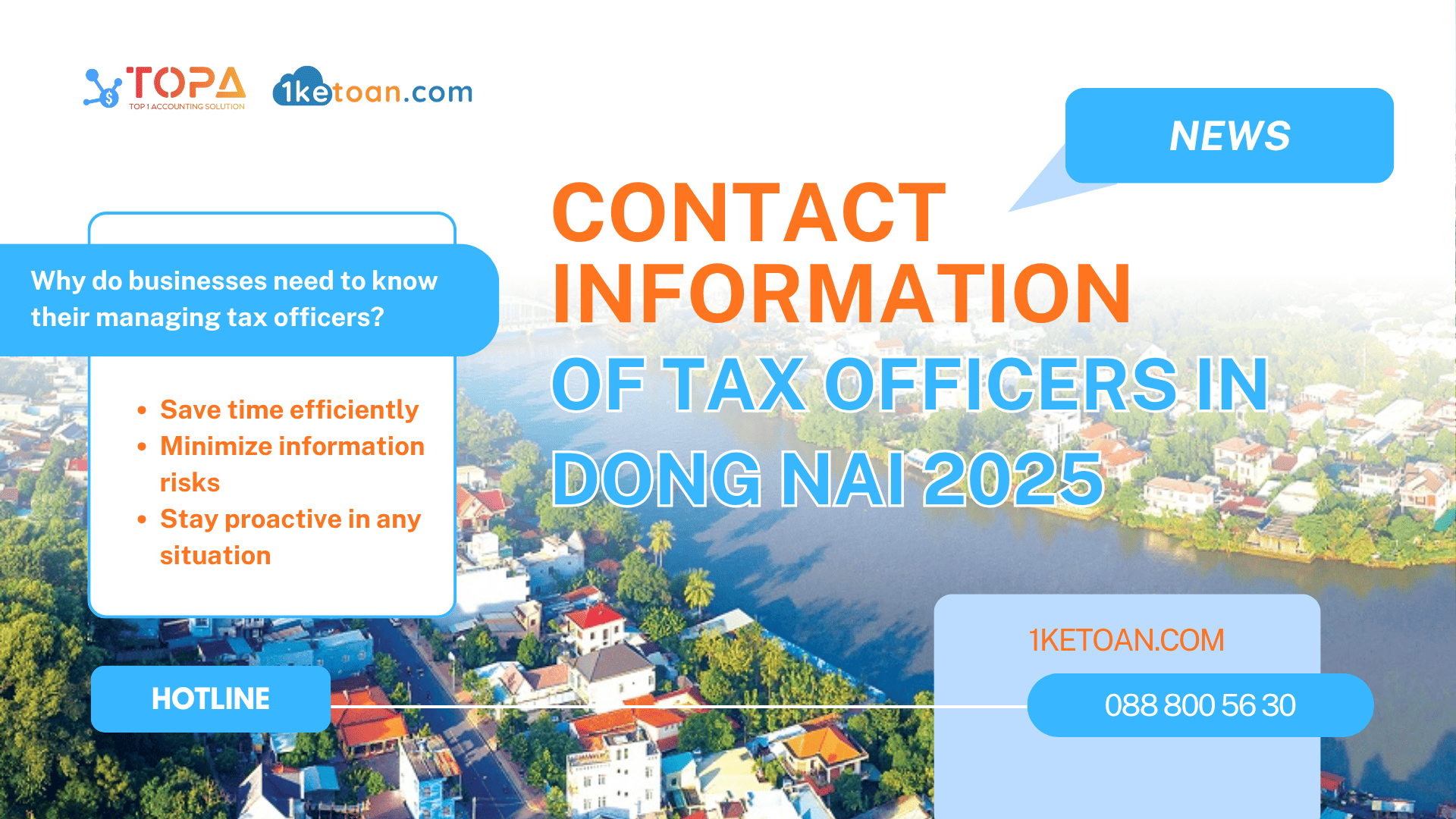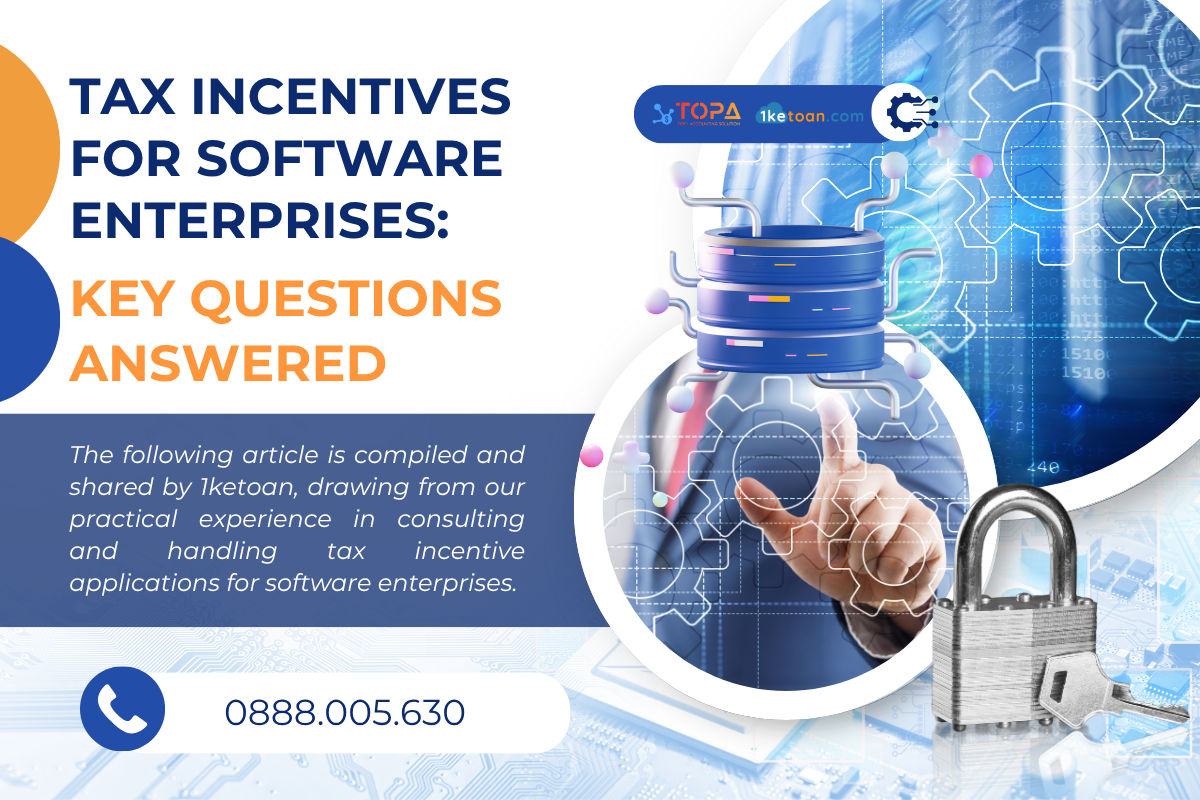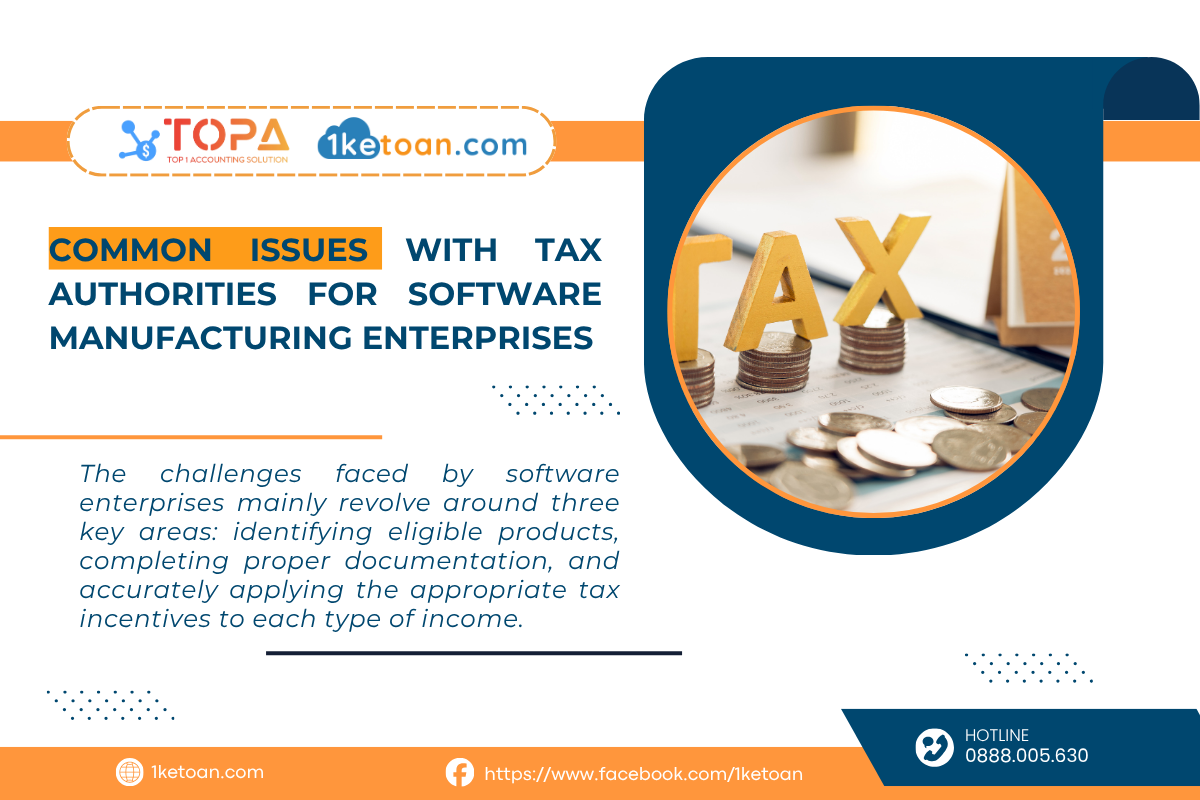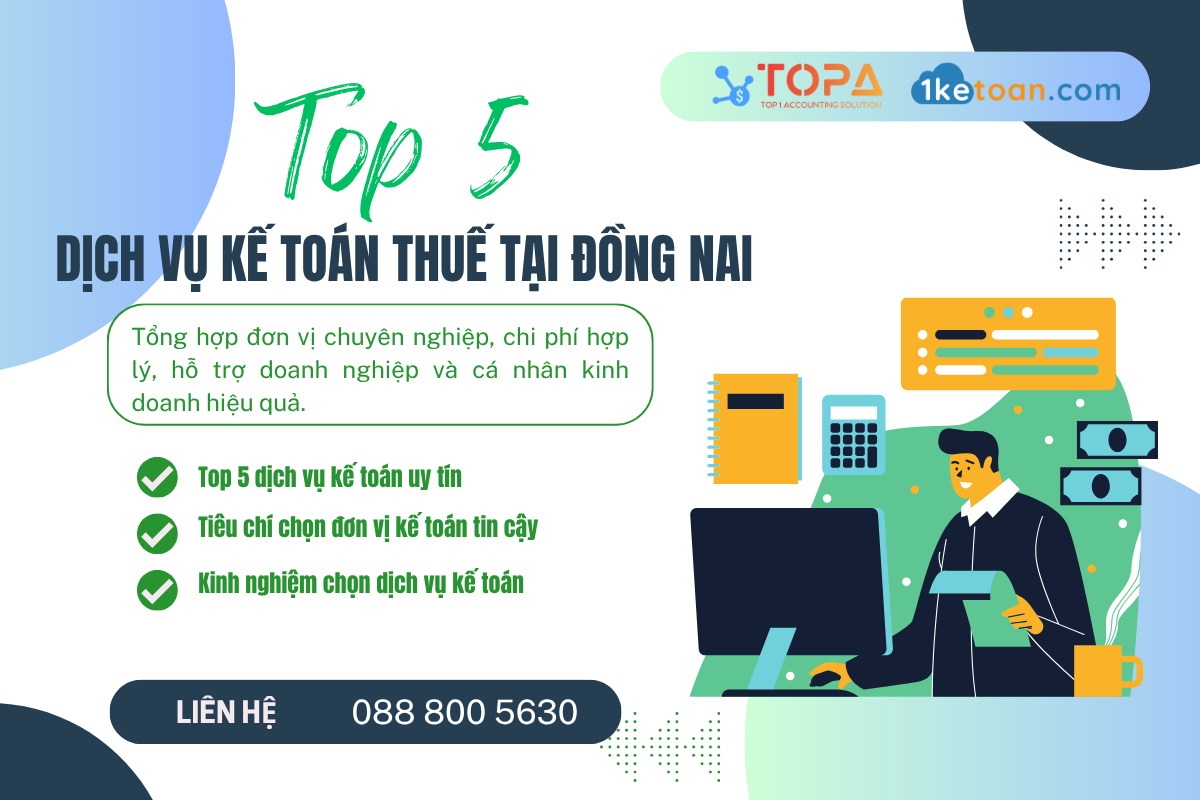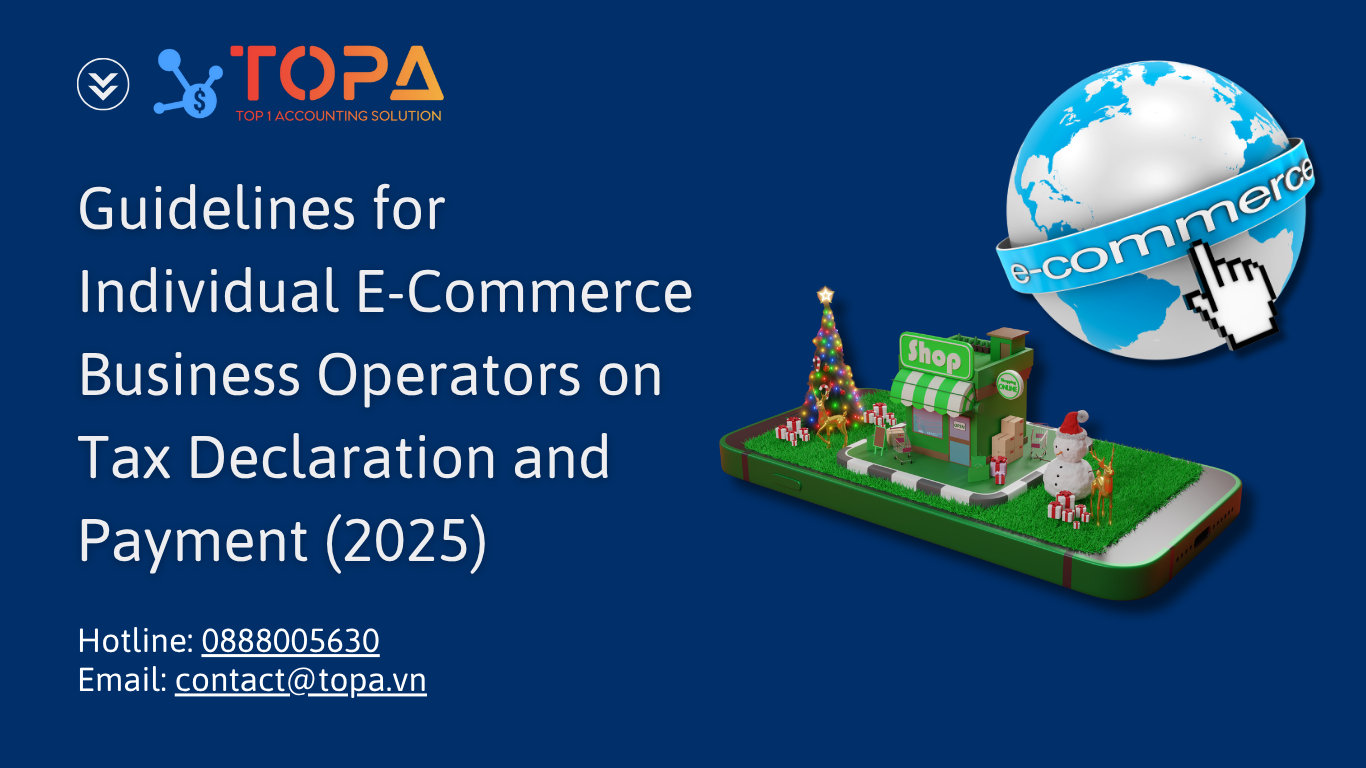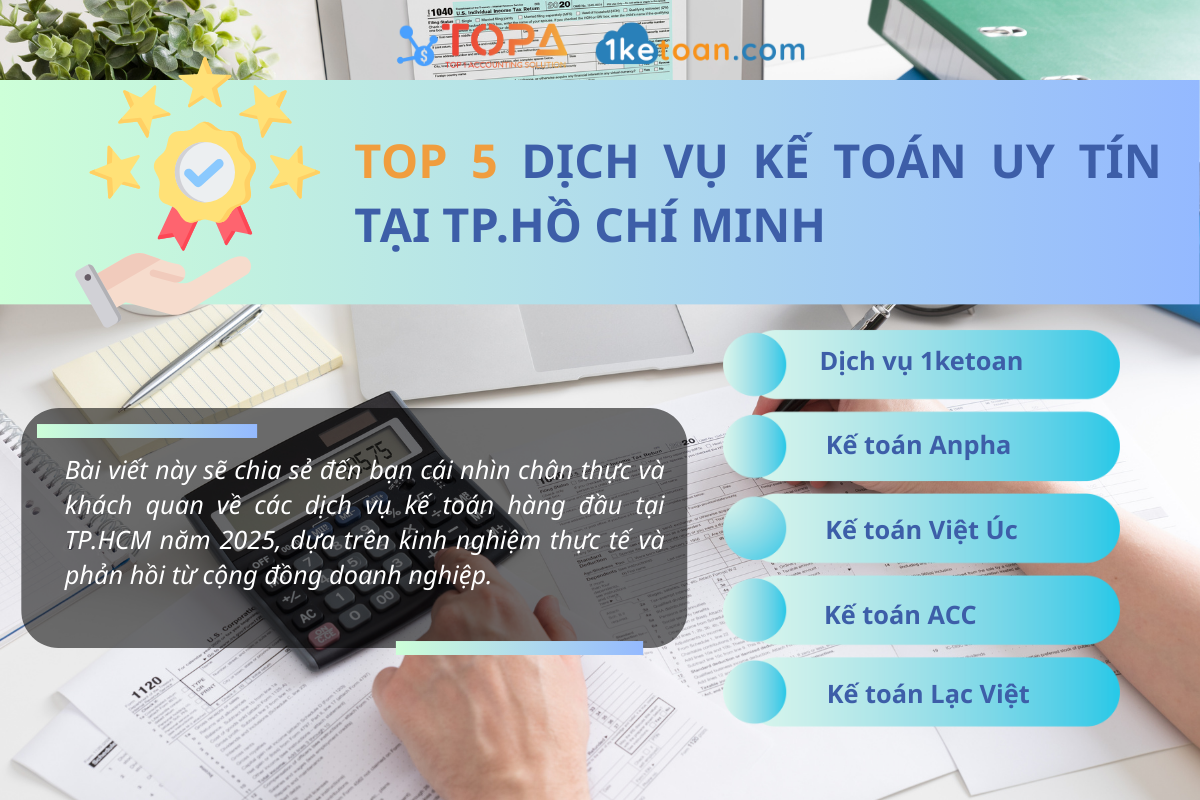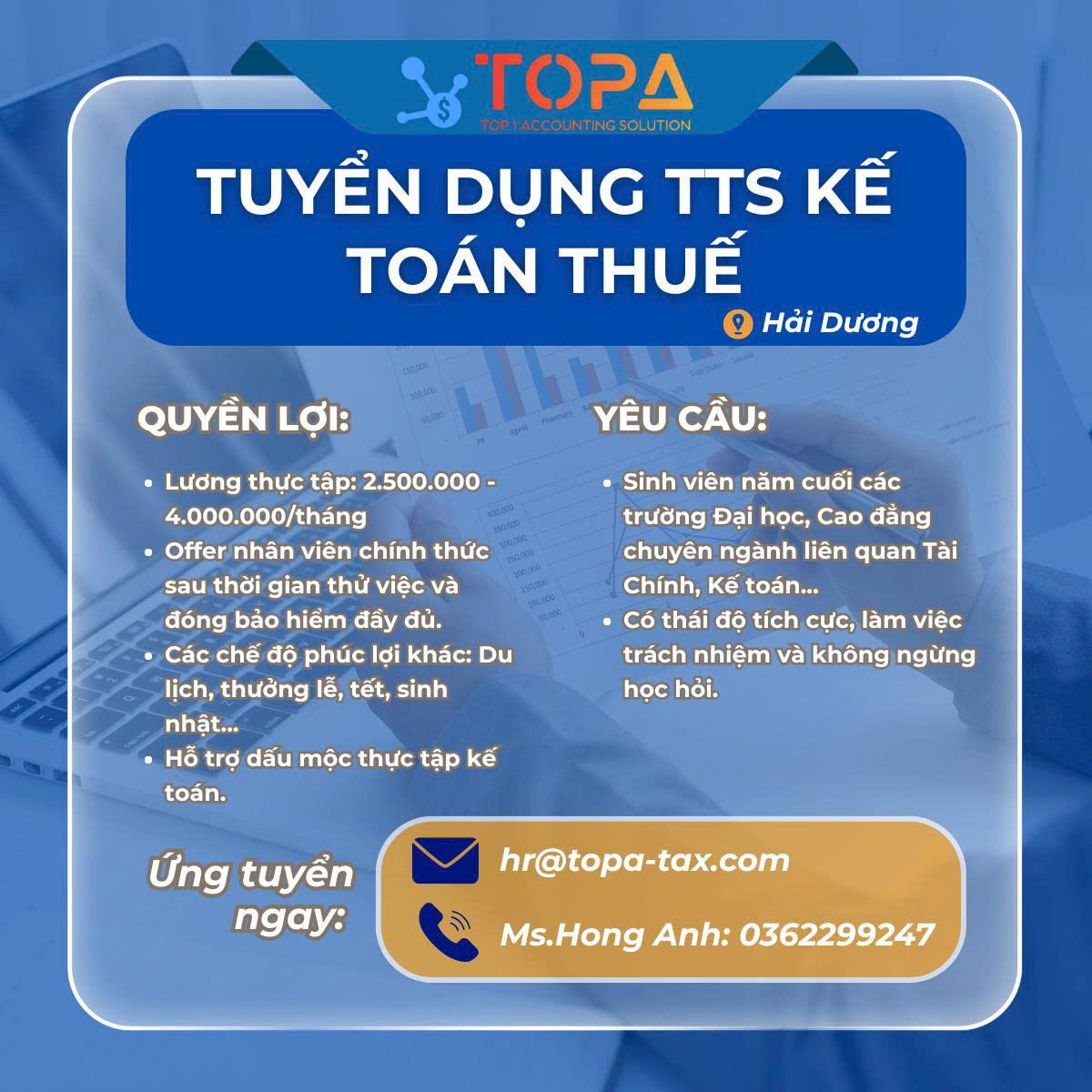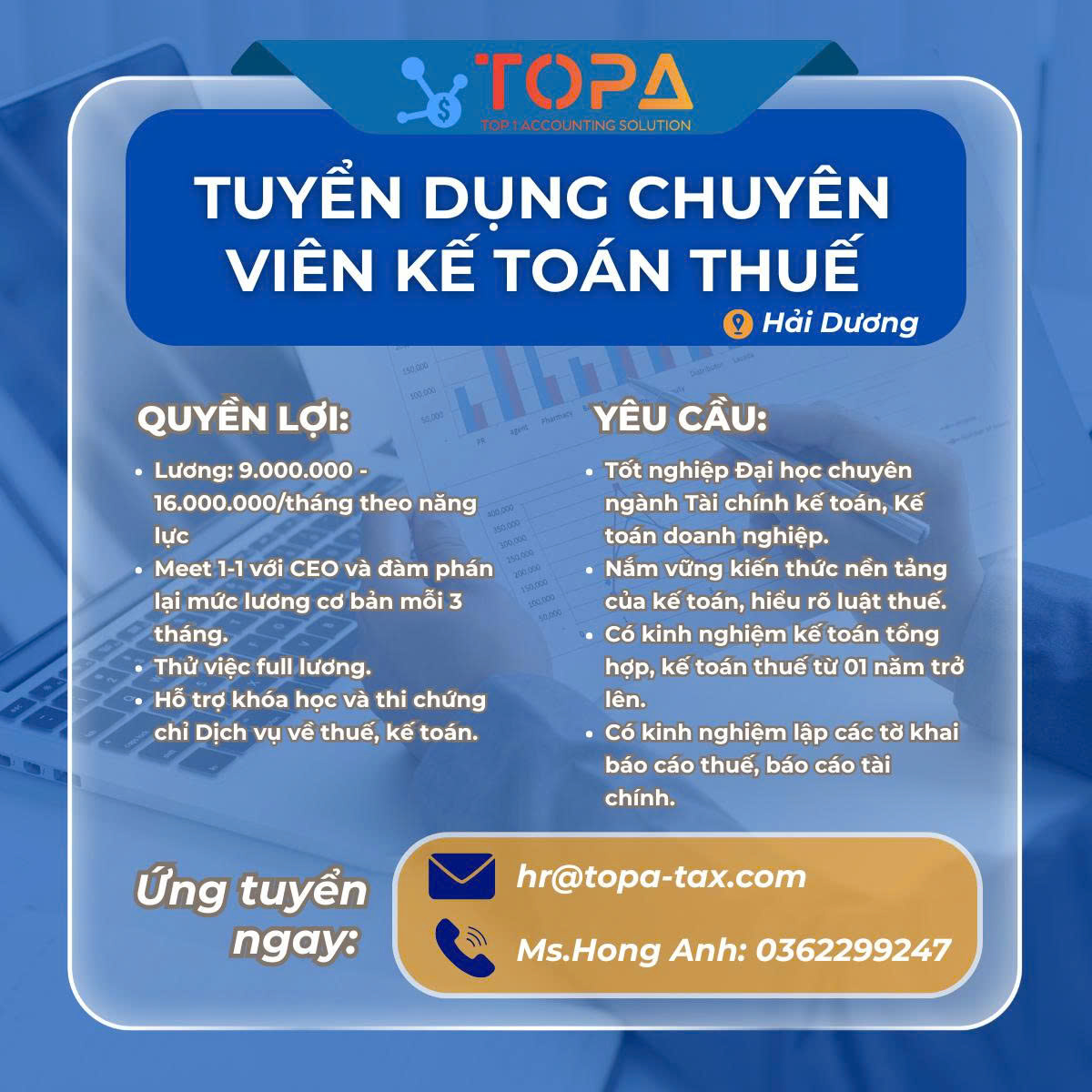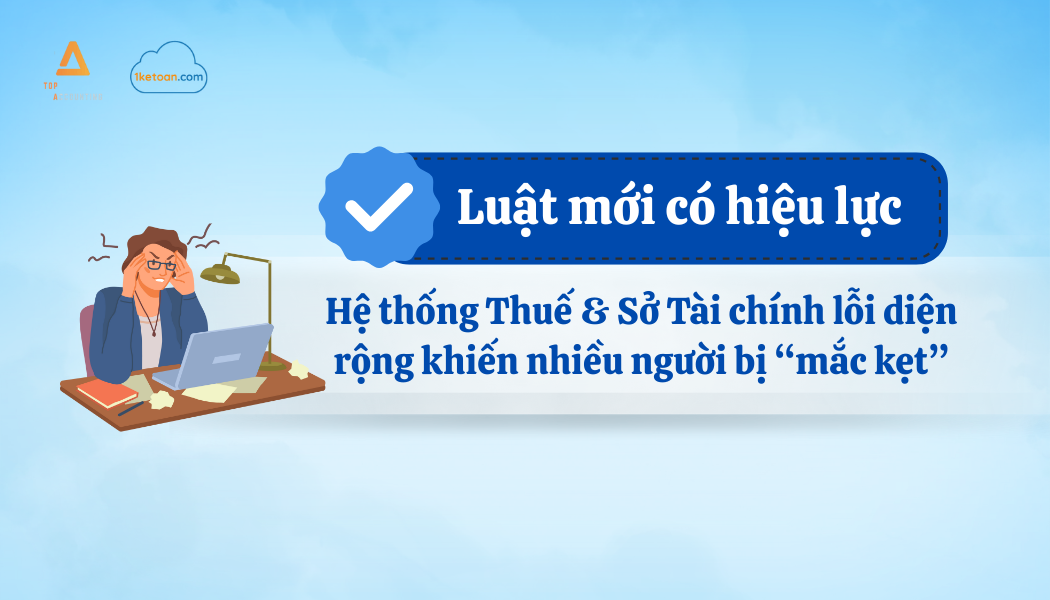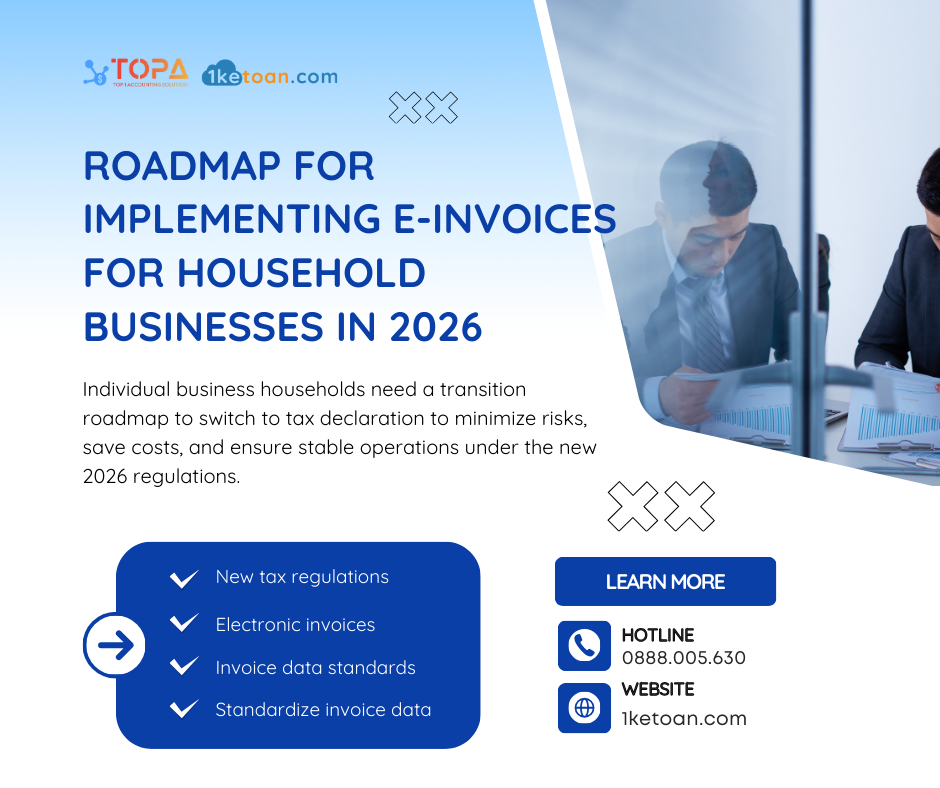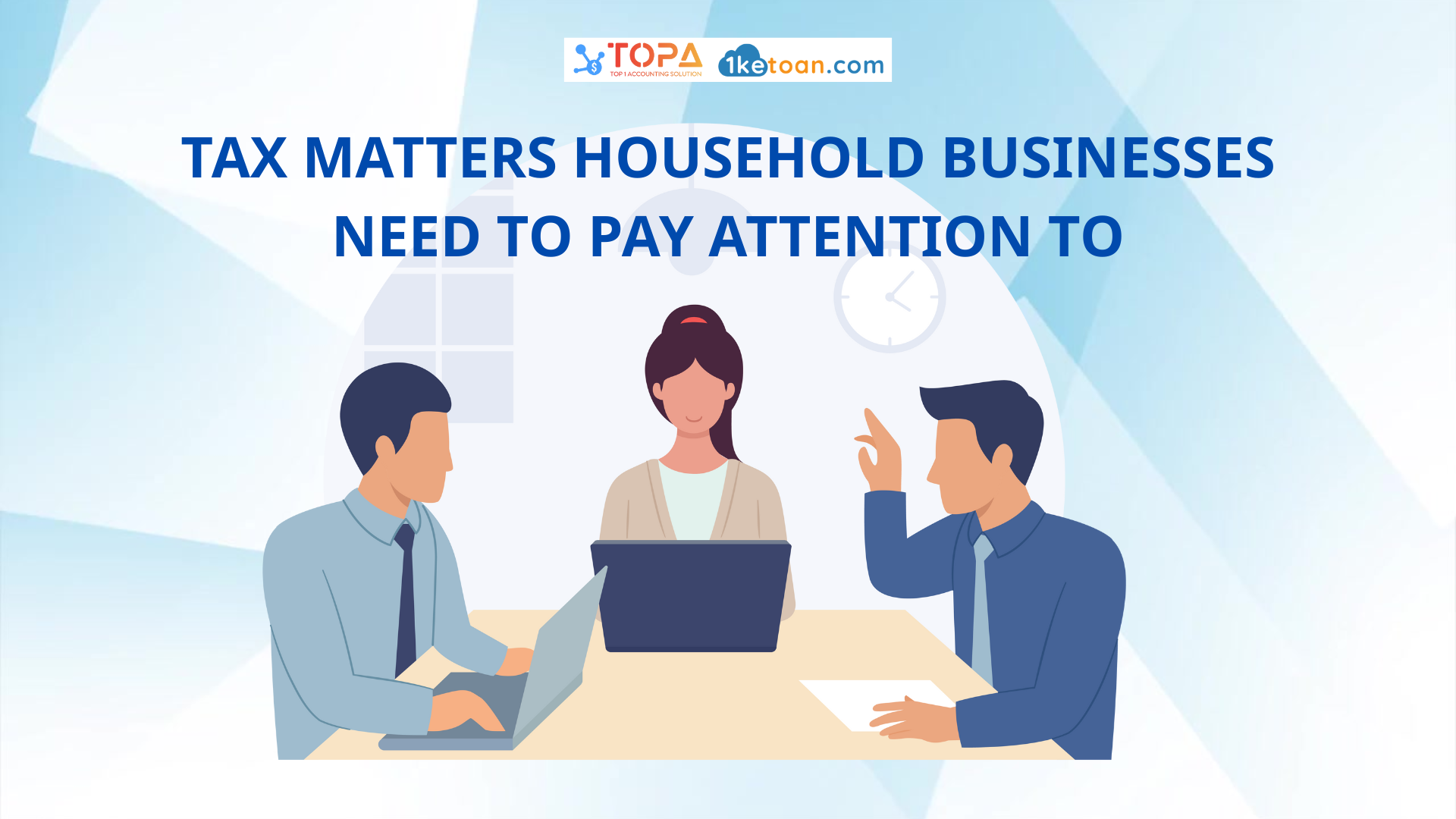Overview of Tax Obligations for Household Businesses in 2025
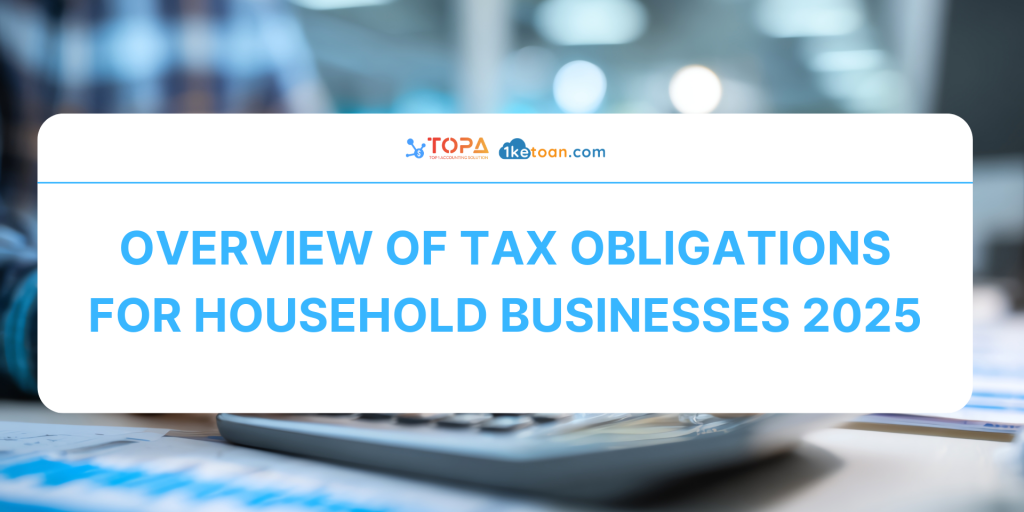
Nội dung
- 1 1. From January 1, 2025: Exit Suspension for Household Business Owners with Tax Debts
- 2 2. From April 1, 2025: E-Commerce Platforms Must Declare and Pay Taxes on Behalf of Online Household Businesses
- 3 3. From June 1, 2025: Household Businesses With Annual Revenue Over VND 1 Billion Must Use e-Invoices Generated from Cash Registers
- 4 4. From July 1, 2025: Tax Identification Numbers Will Be Replaced with Personal Identification Numbers
- 5 5. Transition from Lump-Sum Tax to Declaratory Taxation (November 1, 2025 – December 30, 2025)
- 6 6. From January 1, 2026: VAT and PIT Exemption for Households Earning Under VND 200 Million per Year
- 7 7. Decision 3389/QĐ-BTC – Transforming the Tax Model for Household Businesses as Lump-Sum Tax Is Abolished
- 8 Conclusion
Key Changes Starting from 2025
Beginning in 2025, the tax policy framework for household businesses enters a comprehensive reform phase, covering tax obligations, e-invoices, payment methods, and the transition to personal identification numbers.
For clarity, we divide the changes into two main stages:
Before July 2025:
This is the preparation and transition period when several new regulations begin taking effect, such as exit suspension for household business owners with outstanding tax debts, and e-commerce platforms withholding and paying taxes on behalf of online individual sellers.
After July 2025:
This is the stage of deeper systemic changes, including replacing tax identification numbers with personal identification codes, mandatory e-invoices generated from POS systems for households with annual revenue above VND 1 billion, and stricter requirements for cashless payments.
These updates aim not only to enhance transparency and modernize tax administration, but also to simplify administrative procedures, standardize data, and reduce risks for household businesses. However, to avoid disruptions, each household business needs to clearly understand the timelines, content, and scope of each regulation.
Below is a comprehensive overview of the tax changes applicable to household businesses in 2025, compiled from the latest legal documents and official guidance from the Ministry of Finance.
1. From January 1, 2025: Exit Suspension for Household Business Owners with Tax Debts
Legal Basis
- Law No. 56/2024/QH15 – Law amending and supplementing several laws related to investment and business (passed on November 29, 2024, effective from January 1, 2025).
- Law on Tax Administration No. 38/2019/QH14, particularly Article 69 on exit suspension for taxpayers.
- Clause 9, Article 6 of Law 56/2024/QH15 amending Article 69 of the 2019 Law on Tax Administration, expanding the scope of individuals subject to exit suspension.
Regulation Details
From January 1, 2025, household business owners who owe taxes and fall under enforcement actions for administrative tax decisions will be subject to exit suspension until their tax obligations are fully settled.
Previously, exit suspension mainly applied to legal representatives of enterprises, leaving a gap in managing tax obligations for individual household businesses. Adding household business owners to this scope enhances fairness, transparency, and the effectiveness of tax debt collection while ensuring compliance with tax laws.
This new policy is a strong indication of tighter tax discipline, especially as the number of household businesses grows and revenue scales expand.
Household business owners should proactively review their tax obligations and pay taxes on time to avoid prolonged debts that may affect their freedom to travel abroad and their business credibility.
2. From April 1, 2025: E-Commerce Platforms Must Declare and Pay Taxes on Behalf of Online Household Businesses
Legal Basis
- Law No. 56/2024/QH15 – Law amending and supplementing several laws related to investment and business, passed on November 29, 2024, effective from January 1, 2025.
- Clause 5, Article 6 of Law 56/2024/QH15, amending Article 42 of the Law on Tax Administration No. 38/2019/QH14 regarding the responsibility of organizations to declare and pay taxes on behalf of taxpayers.
Regulation Details
From April 1, 2025, e-commerce platforms or digital platforms with payment functions must withhold and pay taxes on behalf of household businesses and individual sellers operating on their platforms.
If a household or individual seller is not subject to withholding, they must still register, declare, and pay taxes in accordance with tax administration regulations.
This change marks a major shift in e-commerce tax management, transferring the focal point from individual sellers to intermediary platforms—entities capable of collecting and reconciling transaction data more accurately.
3. From June 1, 2025: Household Businesses With Annual Revenue Over VND 1 Billion Must Use e-Invoices Generated from Cash Registers
Legal Basis
- Government Decree No. 70/2025/NĐ-CP, issued on August 15, 2025, detailing and guiding the implementation of several articles of the Law on Tax Administration regarding electronic invoices and documents.
- Article 8 of Decree 70/2025/NĐ-CP, which regulates e-invoices generated from cash registers, effective from June 1, 2025.
Regulation Details
Starting June 1, 2025, household businesses with annual revenue of VND 1 billion or more, operating in sectors such as:
Restaurants, eateries, coffee shops, hotels, retail stores, supermarkets, entertainment services, spas, salons, convenience stores, etc.,
→ Must use e-invoices generated from cash registers that are directly connected to the tax authority.
A “cash register” refers to a device capable of printing invoices, storing data, and transmitting e-invoice information to the General Department of Taxation’s system in accordance with technical standards.
Household businesses may either purchase their own cash registers or use software solutions approved by the tax authority to issue e-invoices, as long as the system ensures automatic, continuous, and complete data transmission.
4. From July 1, 2025: Tax Identification Numbers Will Be Replaced with Personal Identification Numbers
Legal Basis
- Circular No. 86/2024/TT-BTC issued by the Ministry of Finance, guiding the conversion of personal tax identification numbers to personal identification numbers (the 12-digit Citizen ID), effective from July 1, 2025.
- Implemented in accordance with the orientation of the 2019 Law on Tax Administration and the 2023 Law on Citizen Identification to synchronize tax and national population databases nationwide.
Regulation Details
From July 1, 2025, tax identification numbers (TINs) of individuals, households, and household businesses will be replaced with personal identification numbers (12-digit Citizen ID).
This change does not invalidate previous tax identification numbers; instead, tax authorities will migrate and manage existing data so that the personal identification number becomes the sole unified tax identifier.
Organizations, income-paying entities, and household businesses must:
- Update personal identification numbers in tax records, declarations, documents, and e-invoices;
- Ensure data synchronization between the tax authority and the national population database.
5. Transition from Lump-Sum Tax to Declaratory Taxation (November 1, 2025 – December 30, 2025)
Legal Basis
- Decision No. 3352/QĐ-CT dated October 31, 2025, issued by the Tax Department, promulgating the “60-Day Action Plan for Transitioning from Lump-Sum Taxation to Declaratory Taxation for Household Businesses.”
- Decision No. 3389/QĐ-BTC dated October 6, 2025, issued by the Ministry of Finance, approving the Scheme on “Transforming the Tax Administration Model for Household Businesses in the Post–Lump-Sum Tax Era.”
- The 2019 Law on Tax Administration, Resolution No. 68-NQ/TW (2025), and Resolution No. 198/2025/QH15 on tax reform and modernization.
Content
According to Sections 1 and 2, Part II of the Action Plan attached to Decision No. 3352/QĐ-CT:
Objectives:
- Substantively transition the tax administration model from lump-sum taxation to declaratory taxation, in accordance with the Law on Tax Administration and relevant resolutions.
- Strengthen communication and support so that household businesses voluntarily shift to declaratory status or transition to enterprise registration; promote voluntary compliance, transparency, and fairness in tax declaration and payment.
- Modernize technical infrastructure, data systems, and electronic management tools, moving toward a “one-touch” tax procedure model.
- Ensure nationwide, synchronized implementation in alignment with the Scheme under Decision No. 3389/QĐ-BTC dated October 6, 2025
Scope and Implementation Timeline:
- Applied nationwide, with priority given to traditional markets, commercial streets, and areas with a high concentration of lump-sum household businesses.
- Implementation period: November 1, 2025 to December 30, 2025 (60 days).
The 60-day nationwide campaign marks a critical preparation phase for household businesses before officially switching to the declaratory taxation model from January 1, 2026—ensuring transparency, consistency, and alignment with the national tax reform agenda.
6. From January 1, 2026: VAT and PIT Exemption for Households Earning Under VND 200 Million per Year
Legal Basis
- The amended VAT Law (2024), approved by the National Assembly on November 29, 2024, effective July 1, 2025, with the revenue-threshold provisions taking effect on January 1, 2026.
- Corresponding amendments to the Personal Income Tax Law to ensure unified tax exemption policies for small-scale household and individual businesses.
Regulation Details
Starting January 1, 2026, household businesses and individual business owners with annual revenue not exceeding VND 200 million will be exempt from Value-Added Tax (VAT) and Personal Income Tax (PIT).
Compared to the current threshold of VND 100 million per year, this new regulation doubles the exemption limit, reflecting the Government’s policy to support micro and small household businesses and encourage compliant economic activity within the informal sector.
Revenue for tax exemption purposes is determined based on:
- Total revenue in the calendar year (including both goods sales and service provision);
- Regardless of whether a fixed business location exists;
- For multiple business activities, revenue must be aggregated to determine eligibility for tax exemption.
7. Decision 3389/QĐ-BTC – Transforming the Tax Model for Household Businesses as Lump-Sum Tax Is Abolished
Legal Basis
- Decision No. 3389/QĐ-BTC dated October 6, 2025, issued by the Ministry of Finance, approving the Scheme on “Transforming the Tax Administration Model for Household Businesses in the Post–Lump-Sum Tax Era.”
- Based on Resolution No. 68-NQ/TW (2025) and Resolution No. 198/2025/QH15 on tax reform and modernization.
Content
Beginning in 2026, household businesses will shift from lump-sum taxation to a system where they self-declare, self-calculate, and self-pay taxes, according to the implementation roadmap set by the Ministry of Finance.
The goal is to eliminate lump-sum taxation, create a level playing field between household businesses and enterprises, accelerate digitalization, and reduce administrative procedures and compliance costs by 30%.
Provincial and municipal Tax Departments will carry out a 60-day intensive support campaign (October–December 2025) to guide household businesses through the transition and prepare for official implementation on January 1, 2026.
💡 Recommendation: Household businesses should begin familiarizing themselves with electronic accounting and tax platforms (such as 1Ketoan) to proactively handle declarations, tax payments, and document storage in full compliance with regulations.
Conclusion
The 2025–2026 period marks a major turning point for household businesses in Vietnam as they adapt to new tax compliance and administration requirements.
From tax declaration, invoicing, and payment methods to tax identification numbers and personal identification integration, every process is moving toward comprehensive digitalization and transparency.
Proactively updating new regulations and preparing systems for e-invoicing, accounting, and cashless payments not only helps household businesses avoid compliance risks, late payments, or penalties, but also strengthens their professionalism and credibility in the eyes of customers, partners, and tax authorities.
Từ 2026 bỏ thuế khoán, hộ Kinh doanh chuyển sang kê khai như thế nào?
Toàn cảnh nghĩa vụ thuế của Hộ Kinh doanh năm 2025
Luật thuế Hộ Kinh doanh mới nhất Phê duyệt đề án chuyển đổi mô hình hộ kinh doanh

